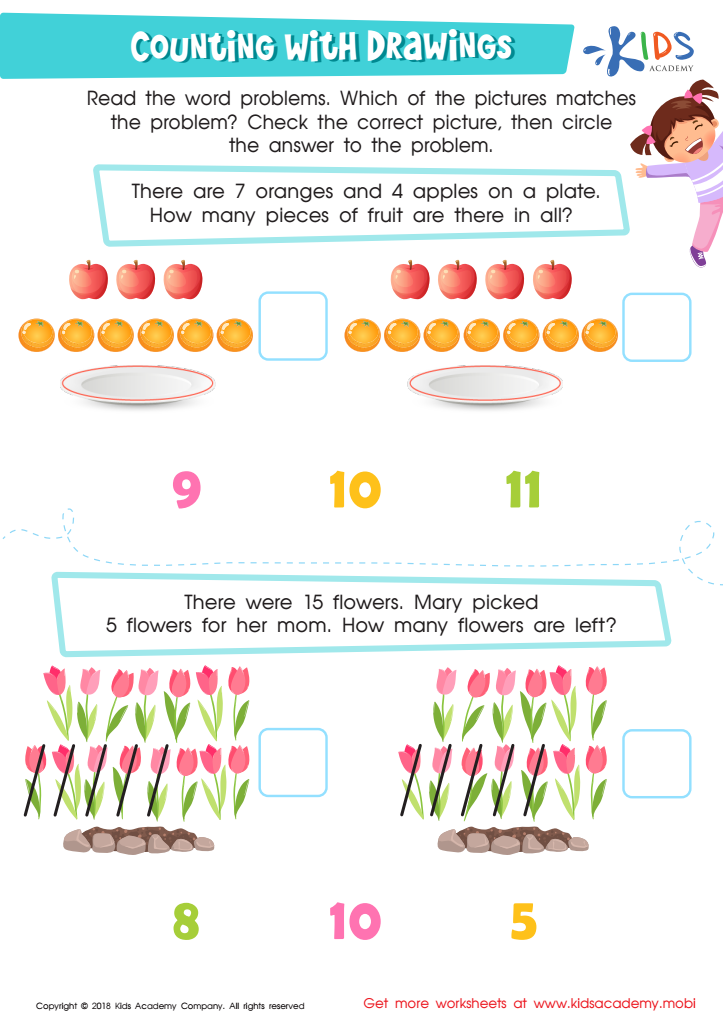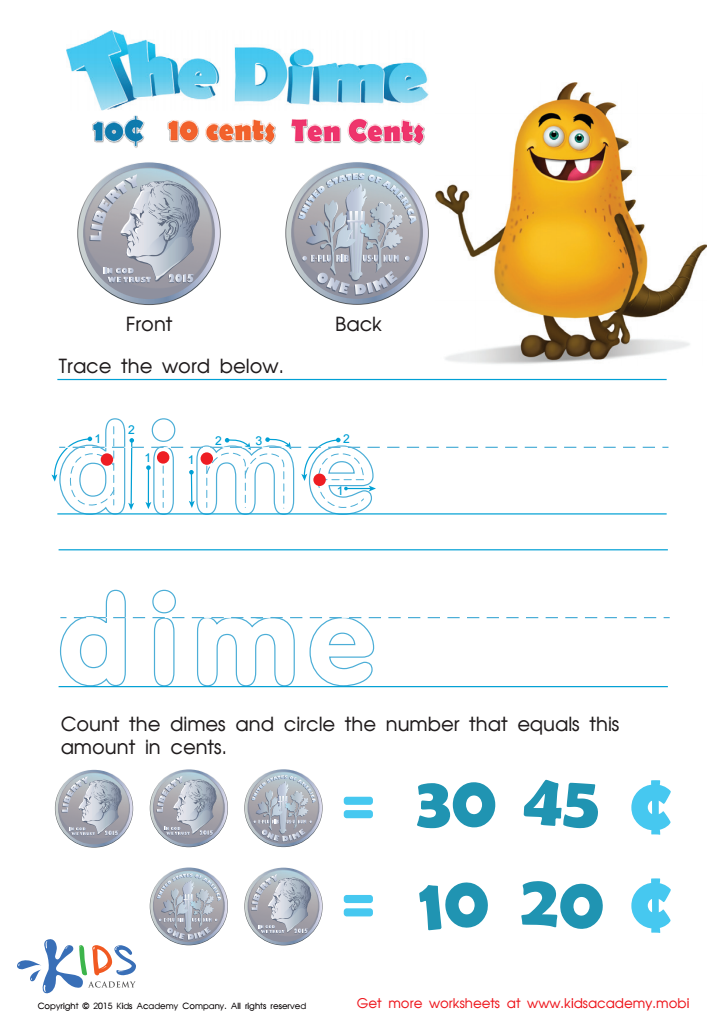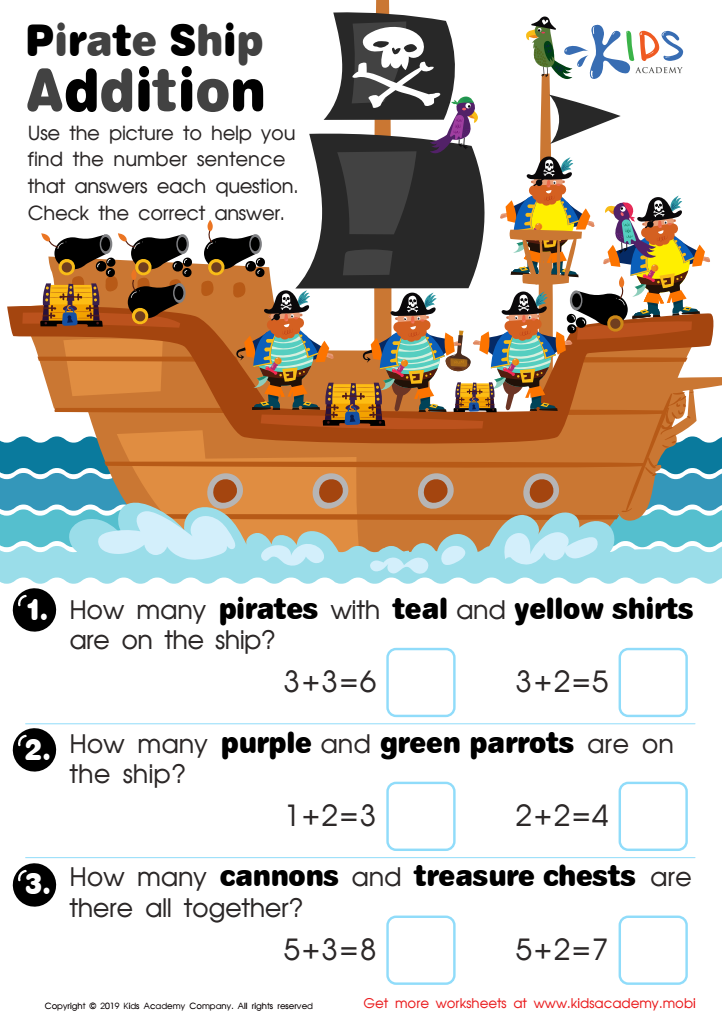Basic arithmetic skills Normal Math Worksheets for Ages 3-4
3 filtered results
-
From - To
Introduce your little learners to the world of numbers with our "Basic Arithmetic Skills Normal Math Worksheets for Ages 3-4." Designed to foster foundational math abilities, these printable worksheets focus on engaging activities that teach counting, simple addition, and basic subtraction. Each worksheet is crafted to make learning enjoyable and accessible for preschoolers, helping them develop confidence in their arithmetic skills. Ideal for both classroom settings and at-home practice, our worksheets turn early math exploration into a fun and interactive experience. Set the stage for your child's future academic success with our comprehensive and beautifully designed resources.


Counting with Drawings: Fruits & Chocolates Worksheet


Ten Cents or the Dime Money Worksheet


Pirate Ship Addition Worksheet
Understanding basic arithmetic skills at ages 3-4 is vital for young children as it lays the foundation for their future academic success. At this age, children are like sponges, absorbing information rapidly and setting the groundwork for more complex concepts.
Firstly, mastering basic arithmetic inadvertently boosts cognitive development. It helps children improve their problem-solving abilities, logical thinking, and enhances their overall mental agility. Arithmetic involves recognizing numbers, understanding relationships between quantities, and simple operations like addition and subtraction, which are fundamental for more advanced mathematical studies.
Additionally, early arithmetic skills are directly connected to daily life activities such as counting objects, sharing equally, and understanding time. These skills foster independence, build confidence, and encourage a sense of achievement, which are crucial for young learners.
Moreover, early math practice in a supportive environment can make learning fun and engaging. Children who start early often develop a love for math, reducing math anxiety problems which are common at later stages.
In conclusion, investing time in teaching basic arithmetic skills to children aged 3-4 opens a world of opportunities. It equips them with necessary life skills and bolsters their academic future. Parents and teachers play a crucial role in introducing and nurturing these skills in developmentally appropriate, engaging, and supportive ways.
 Assign to My Students
Assign to My Students



















